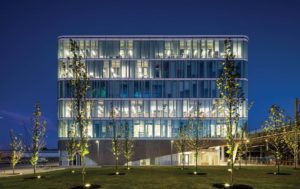
Have you been feeling sleepy lately? Those late-night assignments might not be the only reason.
Our bodies are very good at keeping time with the day. Our circadian rhythm (biological clock) controls how sleepy we feel, but it also affects a lot of other biological mechanisms.
You’re most alert in the mid-morning, for instance, and you have the fastest reaction time and best coordination in the middle of the afternoon. Your body temperature and blood pressure is highest in the early evening. In the late evening, humans experience a rush of melatonin: the molecule that sends us to sleep.
What triggers all of this? It’s a combination of factors, but the most important is sunlight. Light entering the eye tells us a new day has started. Some Flinders researchers have even figured out certain wavelengths of light that keep us more awake than others. They’ve used this to build glasses that we can reset our biological clocks with.
But even if you’re not receiving much daylight, your biological clock can still keep time. Living organisms actually have their own autonomous clocks, which we’ve known about since the 18th century when Jean Jacques d’Ortous de Mairan kept a mimosa plant in the dark for several days. The leaves opened and closed in the mornings and evenings, even though there was no sunlight to trigger it.
Last year, three American scientists won the Nobel Prize (Physiology or Medicine) for pinpointing the genes that control our circadian rhythm. It runs on a feedback loop: a gene in the DNA of each of our cells is used to create a protein, and that protein then switches the gene off. The whole process takes a day, and it commands the rest of our circadian rhythms.
In humans, our internal clocks run to about 24.2 hours – slightly longer than the day. This means we need to reset our circadian rhythms every morning with daylight if we want to keep in step with the day.
So make sure you get some sunlight in between classes!

